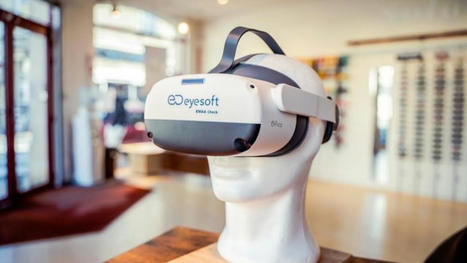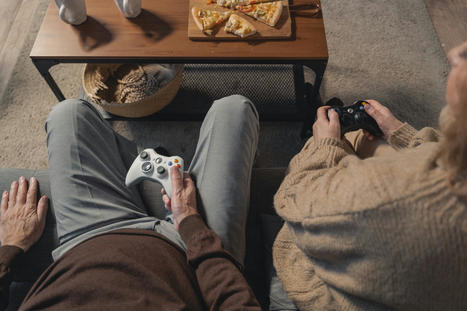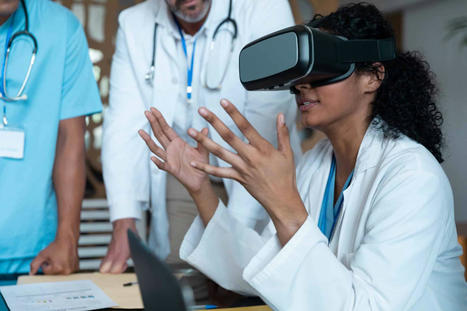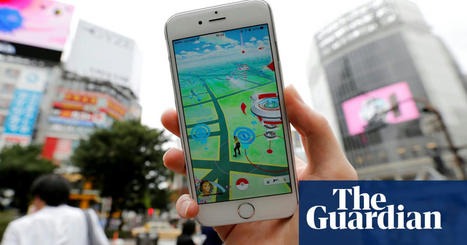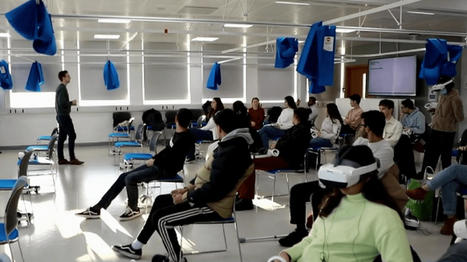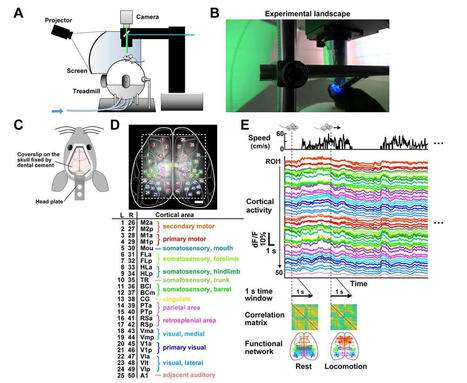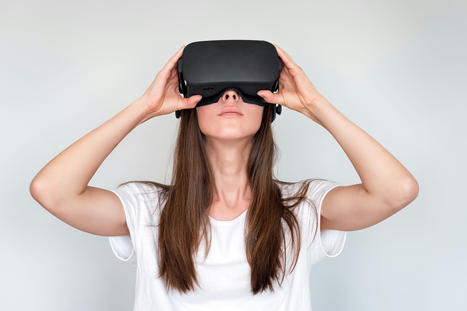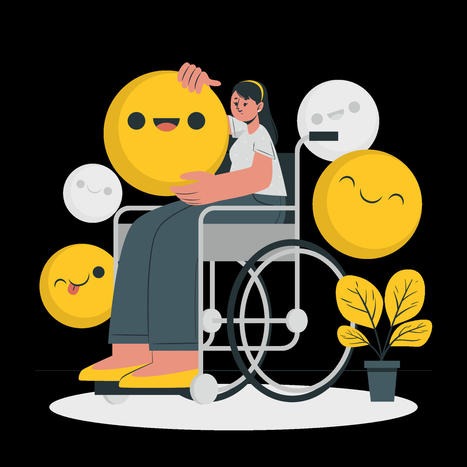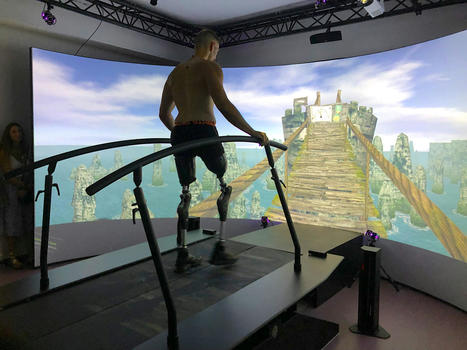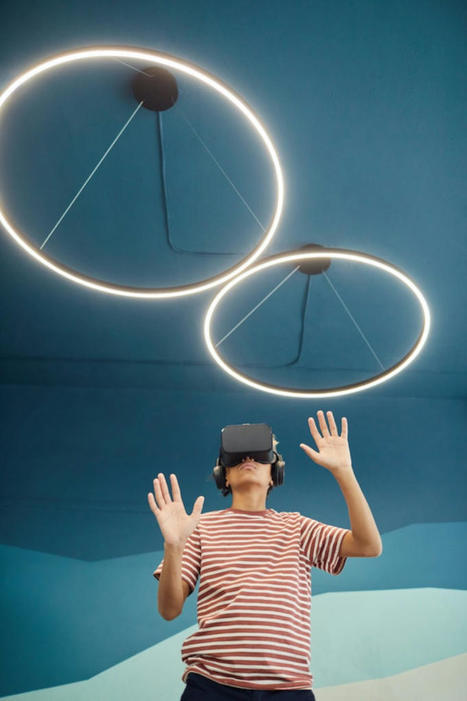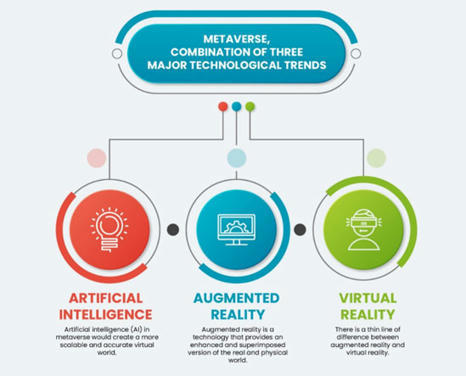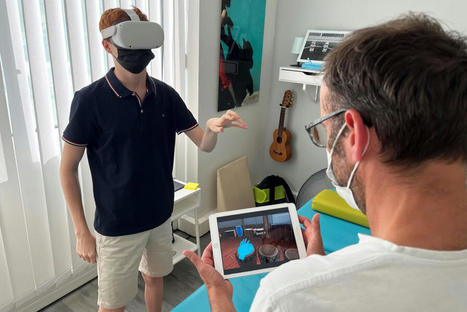 Your new post is loading...
 Your new post is loading...

|
Scooped by
Lionel Reichardt / le Pharmageek
July 9, 2023 2:02 AM
|
Une jeune pousse française a conçu des programmes d’animation, virtuels et interactifs en 3 dimensions pour les casques immersifs, en associant les images en relief projetées par l’appareil à des capteurs…

|
Scooped by
Lionel Reichardt / le Pharmageek
July 1, 2023 1:58 AM
|
Cet objectif chiffré n'a pas de base scientifique. Mais augmenter son activité physique, surtout lorsque l'on a un mode de vie sédentaire, permet d'allonger son espérance de vie et de prévenir des maladies chroniques.
Consumer InternetLatest News Akili, a leading digital medicine firm, has unveiled a groundbreaking solution for adults with Attention Deficit Hyperactivity Disorder (ADHD). EndeavorOTC, an immersive mobile video game treatment, has been clinically proven to enhance attention and focus in individuals with ADHD. This innovative technology, powered by Akili's unique Selective Stimulus Management Engine (SSME), builds upon the success of EndeavorRx, the first FDA-approved video game treatment for children aged eight to twelve with ADHD. Become a Subscriber Please purchase a subscription to continue reading this article. Subscribe Now Recent clinical trial data revealed remarkable improvements in ADHD symptoms, concentration, focus, and overall quality of life in adults who used EndeavorOTC. Approximately 83% of participants reported clinical improvements in attention, while average focus levels improved by 85%. In fact, over one-third of individuals experienced the elimination of attention deficits through this non-pharmacological treatment. Moreover, 73% of participants observed quality of life benefits, such as improved task management, timely completion of chores, and an enhanced ability to locate important items like keys and wallets. The introduction of EndeavorOTC is particularly timely, as the COVID-19 pandemic has exacerbated mental health challenges and increased the demand for effective ADHD therapies. Akili launched this groundbreaking solution under the FDA's enforcement policy, which expedites access to low-risk mental health digital health devices. By providing a safe and accessible non-drug option, EndeavorOTC addresses the gap between the growing demand for care and the limited availability of viable treatments for adults with ADHD. This novel video game treatment signifies a significant step forward in ADHD therapy. Historically, adults with ADHD have been overlooked compared to children, despite the profound impact this condition can have on various aspects of their lives. Dr. Stephen Faraone, a Distinguished Professor, and Vice Chair for Research, highlights the adverse consequences of untreated ADHD on personal and professional well-being. The President of the World Federation for ADHD emphasizes the urgent need for new, non-pharmacological treatments that effectively support adults with ADHD. EndeavorOTC addresses this unmet need by providing adults with a fun and engaging treatment option. By leveraging the power of video games, Akili empowers individuals with ADHD to take control of their symptoms and improve their cognitive abilities. The company plans to actively involve users in product development, seeking their feedback to create future versions of the game that are more engaging, enjoyable, and effective. The availability of EndeavorOTC is especially crucial for millions of Americans who lack reliable access to medication or adequate mental healthcare providers. Eddie Martucci, CEO of Akili, emphasizes the significance of offering patients better non-drug treatment options. Drawing upon the success of EndeavorRx in children, Martucci highlights the positive impact of the core technology inside EndeavorOTC, which has already helped thousands of children with ADHD. With the introduction of EndeavorOTC, eligible adults now have rapid access to a clinically established treatment alternative. By engaging users in activities that enhance focus while disregarding distractions, the treatments effectively improve attention and daily functioning. Therefore, Akili's EndeavorOTC marks a groundbreaking advancement in ADHD therapy for adults.
Via Emmanuel Capitaine

|
Rescooped by
Lionel Reichardt / le Pharmageek
from e-learning
April 22, 2023 8:55 AM
|
Un programme d'entraînement en réalité virtuelle a démontré une efficacité étonnante pour la formation de jeunes élèves infirmiers.
Via Doc-Ifsi-Narbonne
The CEO of Niantic has helped create technologies that have changed the way we live. How does he see the future of play?
Via Emmanuel Capitaine

|
Scooped by
Lionel Reichardt / le Pharmageek
April 5, 2023 7:47 AM
|
Un hôpital londonien propose à des étudiants de se confronter à des situations concrètes d'urgence médicale. Via un casque de réalité virtuelle, ils doivent prendre des décisions qui influeront sur la santé du patient virtuel.
An international research collaboration has developed a VR imaging system that can measure a wide range of neural activity in the cortices of mice during active behavior. This enabled them to illuminate the abnormalities in cortical functional network dynamics that are found in autism model mice.
Via Emmanuel Capitaine

|
Scooped by
Lionel Reichardt / le Pharmageek
January 8, 2023 2:02 PM
|
VR-based training may help improve social cognition and functioning in patients with schizophrenia.

|
Scooped by
Lionel Reichardt / le Pharmageek
December 12, 2022 1:21 AM
|
AR/VR may increase access to healthcare and make procedures less invasive, but could potentially cause cybersickness and head and neck strain.

|
Scooped by
Lionel Reichardt / le Pharmageek
November 21, 2022 12:51 AM
|
DeepWell DTx is a video game development and publishing business that will build therapeutic games in-house and a regulatory services provider for navigating the Food & Drug Administration's bureaucracy.

|
Rescooped by
Lionel Reichardt / le Pharmageek
from e-learning
November 17, 2022 1:34 PM
|
La semaine européenne pour l’emploi des personnes handicapées (SEEPH2022) se déroule du 14 au 22 novembre, des ressources interactives présentées sous...
Via Doc-Ifsi-Narbonne

|
Scooped by
Lionel Reichardt / le Pharmageek
October 26, 2022 2:59 AM
|
Fadi Jamal - Président izyCardio CardioParc

|
Scooped by
Lionel Reichardt / le Pharmageek
October 11, 2022 2:32 AM
|
Sidekick Health is out to show that gamified, digital therapeutics programs can help patients more effectively manage their chronic conditions.
|
Cet équipement, se basant sur le principe de réalité virtuelle, serait révolutionnaire. Le Laboratoire d’Analyse de la Marche en temps réel (abrégé GRAIL en anglais) est un bijou technologique pour les patients en situation de handicap comme pour le personnel médical. Son inauguration avait lieu ce vendredi 16 juin à l’hôpital du Grau-du-Roi dépendant du CHU de Nîmes.
Via Rémy TESTON

|
Rescooped by
Lionel Reichardt / le Pharmageek
from e-learning
April 22, 2023 8:55 AM
|
Après la démocratisation des LMS et leurs multiples ressources, il semble que les conditions soient réunies pour accueillir les casques ou les lunettes de réalité virtuelle et la 3D pour de nouvelles découvertes pédagogiques.
Via Doc-Ifsi-Narbonne
Au Royaume-Uni, la réalité virtuelle permet d'aider les patients souffrant de troubles mentaux. En France ? Le point avec le Dr Lucie Joly, psychiatre.
Via Rémy TESTON

|
Scooped by
Lionel Reichardt / le Pharmageek
April 5, 2023 8:12 AM
|
The CEO of social-media giant Meta has sworn by AI, popularized by the chatbot ChatGPT.

|
Scooped by
Lionel Reichardt / le Pharmageek
April 3, 2023 6:04 AM
|
We are at the beginning of a new chapter of the internet age. A new platform that «will be even more immersive; an internet in which the user is part of the experience and does not just watch it». These words by Facebook number one Mark Zuckerberg, spoken at the now famous Connect conference in […]

|
Scooped by
Lionel Reichardt / le Pharmageek
January 22, 2023 10:26 AM
|
Wordle, Minecraft and Scrabble are played online by millions. Gamifying experiments can make behavioural research more inclusive, rigorous and reproducible — if it’s done right.

|
Scooped by
Lionel Reichardt / le Pharmageek
January 8, 2023 7:32 AM
|
Background: Gamification refers to the use of game elements in nongame contexts. The use of gamification to change behaviors and promote physical activity (PA) is a promising avenue for tackling the global physical inactivity pandemic and the current prevalence of chronic diseases. However, there is no evidence of the effectiveness of gamified interventions with the existence of mixed results in the literature.
Objective: The aim of this systematic review and meta-analysis is to evaluate the effectiveness of gamified interventions and their health care potential by testing the generalizability and sustainability of their influence on PA and sedentary behavior.
Methods: A total of 5 electronic databases (PubMed, Embase, Scopus, Web of Science, and the Cochrane Central Register of Controlled Trials) were searched for randomized controlled trials published in English from 2010 to 2020. Eligibility criteria were based on the components of the participants, interventions, comparators, and outcomes framework. Studies were included when they used gamified interventions in daily life with an active or inactive control group and when they assessed a PA or sedentary behavior outcome. We conducted meta-analyses using a random-effects model approach. Sensitivity analyses, influence analyses, and publication bias analyses were performed to examine the robustness of our results.
Results: The main meta-analysis performed on 16 studies and 2407 participants revealed a small to medium summary effect of gamified interventions on PA behavior (Hedges g=0.42, 95% CI 0.14-0.69). No statistical difference among different subgroups (adults vs adolescents and healthy participants vs adults with chronic diseases) and no interaction effects with moderators such as age, gender, or BMI were found, suggesting good generalizability of gamified interventions to different user populations. The effect was statistically significant when gamified interventions were compared with inactive control groups, such as waiting lists (Hedges g=0.58, 95% CI 0.08-1.07), and active control groups that included a nongamified PA intervention (Hedges g=0.23, 95% CI 0.05-0.41). This suggests that gamified interventions are not only efficient in changing behavior but also more effective compared with other behavioral interventions. The long-term effect (measured with follow-up averaging 14 weeks after the end of the intervention) was weaker, with a very small to small effect (Hedges g=0.15, 95% CI 0.07-0.23).
Conclusions: This meta-analysis confirms that gamified interventions are promising for promoting PA in various populations. Additional analyses revealed that this effect persists after the follow-up period, suggesting that it is not just a novelty effect caused by the playful nature of gamification, and that gamified products appear effective compared with equivalent nongamified PA interventions. Future rigorous trials are required to confirm these findings.

|
Scooped by
Lionel Reichardt / le Pharmageek
December 7, 2022 2:08 AM
|
Alors que de plus en plus d'entreprises et d'industries s'aventurent dans les métavers, une société de soins de santé explique comment elle utilise les p

|
Rescooped by
Lionel Reichardt / le Pharmageek
from Buzz e-sante
November 17, 2022 1:35 PM
|
La réalité virtuelle trouve de plus en plus sa place dans l’univers médical. La start-up H’ability s’inscrit dans cette voie avec une...-Réalité virtuelle
Via Rémy TESTON

|
Scooped by
Lionel Reichardt / le Pharmageek
October 28, 2022 1:50 AM
|
Heroes vs. Villains: How Gamification Helped in the Fight Against COVID-19 Lire l'article complet sur : www.sidekickhealth.com

|
Scooped by
Lionel Reichardt / le Pharmageek
October 26, 2022 2:53 AM
|
There are neurological benefits to engaging in an immersive environment where experiences can be controlled and stimuli can be regulated.
|
 Your new post is loading...
Your new post is loading...
 Your new post is loading...
Your new post is loading...




